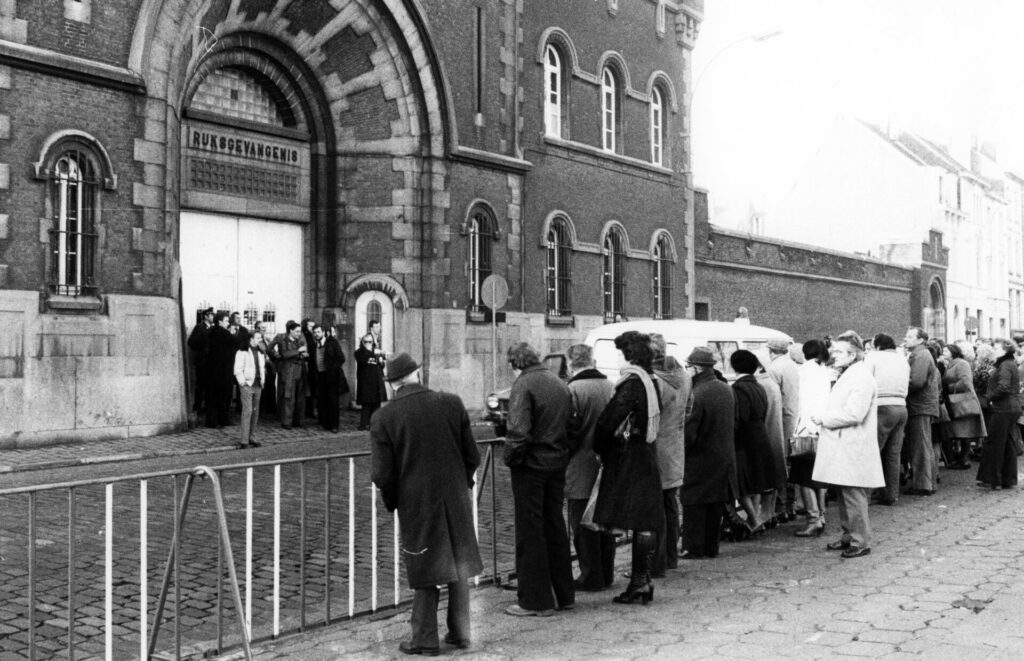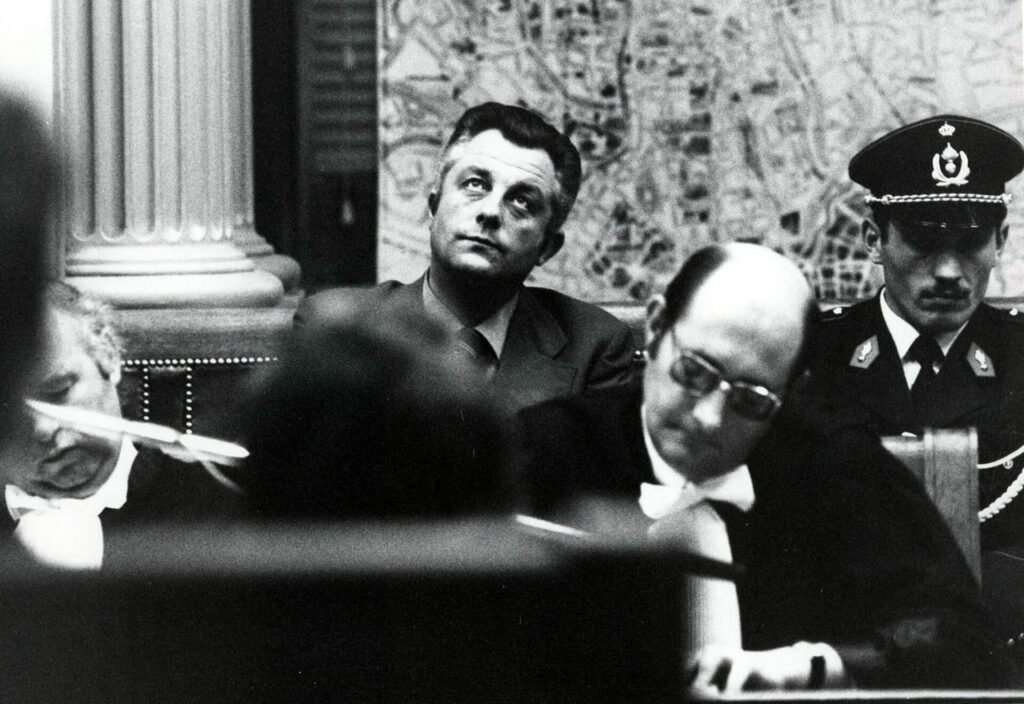On this day, 28 January 1978, the man who had become Belgium’s youngest-ever investigating judge was convicted in Ghent for the attempted murder of his wife, theft, forgery and defamatory statements.
When a man named Jacky Van Renterghem was pulled over by the police in 1977, it was only to check why his rear lights were not working. Yet the man seemed suspicious. The police, deciding to search his car, found stolen valuables, money and jewellery in his boot – all belonging to a retired couple.
Shortly after, two more suspects were arrested in connection with this case, including businessman Lucien 'Luc' De Craemer, a close friend of Ghent investigating judge Guy Jespers.
Luc De Craemer had connections to various bars and brothels, and would occasionally let Jespers take advantage of these services. Jespers was the son of a wealthy merchant and had made a name for himself as Belgium’s youngest-ever investigative judge, winning several high-profile cases at the time. His friends nicknamed him "Guy le beau."
After the arrest, De Craemer hoped that his judge friend would help him out of his situation. When Jesper refused, De Craemer turned on his friend, accusing the judge of having ordered the robbery.

Lucien De Creamer. Credit: Belga Archives
De Craemer went further and accused Jesper of having ordered an assassination attempt on the judge's wife, Rosine De Sutter, in 1976, having placed a bomb under his car.
De Sutter miraculously survived the explosion. At the time, Jespers excused the attack on his wife as having been aimed at him – after he had imprisoned a gang of drug dealers shortly before. A year later, Jespers is said to have drowned her in a bath in the presence of De Craemer, but this was never proven.
The judge's motive? He wanted to get rid of his wife in order to live out his romance with his mistress.
But the accusations did not end there. Jespers had also helped him in the burglary of his neighbour's house, Diane Ledoux, after she had confided to him that she kept 15 million Belgian francs of family inheritance in her safe. Jespers allegedly passed this on to De Craemer and even gave him the safe's code and key. Jespers confessed to having told De Craemer about this, but according to him, the whole break-in had happened "without his knowledge."
Jespers was arrested on 27 February 1977 and became involved in a case that irreparably damaged his impeccable reputation. He was charged with murder, attempted murder, theft, the illegal possession of arms and forgery. His name was associated with the prostitution environment, key clubs, the Ghent beau monde and handling large amounts of money.
It was also the first time a magistrate had been brought to trial in Belgium.

Investigating judge Guy Jespers arriving at his trial. Credit: Belga Archives
On 28 January 1978 Jespers was sentenced to 20 years of hard labour by the Ghent Court of Assizes for the attempted murder of his wife, theft, forgery and defamatory statements. De Craemer, as co-author of the attempted murder, was sentenced to 15 years of hard labour. Jacky Van Renterghem was sentenced to two years, of which 13 months were suspended.
Curiously, Jespers was acquitted of the actual murder of his wife in the bath over a lack of evidence.
Despite these convictions, many questions remain over the case. For example, in 2004, De Craemer claimed that the attack on the judge's wife was staged by De Craemer and Rosine De Sutter in order to put an end to the judge's assassination plans.

A group of onlookers wanting to see the wedding of Guy Jespers with Ghislaine Clyncke at Ghent prison. Credit: Belga Archives
Five weeks after his conviction, the judge married his girlfriend Ghislaine Clyncke in prison, amid much media furore.
A 1979 Flemish film called The Judge's Friend depicted the tale. In the 1980s, Jespers showed signs of paralysis and speech problems as a result of a neurological disorder, with the courts deciding to release him.
On 20 June 2002, the former judge died of colon cancer.
"Today in History" is a new historical series brought to you by The Brussels Times, aiming to take you on a trip down memory lane for newcomers and Belgians alike, written and compiled by Ugo Realfonzo & Maïthé Chini. With thanks to the Belga News Agency.

